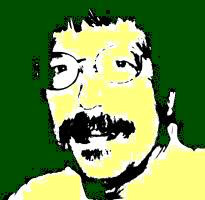Ranganathan obviously had bound volumes in mind in 1931. For purposes of my work here and everywhere, I am happy to broaden the term. Here a book is an informative source, no matter the media or format. Sounds simple . . .
I say informative instead of information because information is what happens when someone becomes informed--takes a sign, in the semiotic sense, to be "about" some part of the tangible or intangible world, and to do so in a way that one learns. Information does not happen when you re-read yesterday's news reports unless you see or understand something you did not notice before. Informative indicates that the source has the reasonable potential to inform someone, sometime.
I say informative instead of information because information is what happens when someone becomes informed--takes a sign, in the semiotic sense, to be "about" some part of the tangible or intangible world, and to do so in a way that one learns. Information does not happen when you re-read yesterday's news reports unless you see or understand something you did not notice before. Informative indicates that the source has the reasonable potential to inform someone, sometime.
A source is not just a text or document, although to be about the world the source has to appear to follow shared coding and interpretation systems equivalent to those found in texts, documents and language. Any audio or visual material that can be stored and viewed again can be taken as an informative source.
The apparent coding for a source furthers implies an author or speaker. A source is then ultimately one or more persons representing themselves in the source. These persons in turn offer themselves as sources in the context of one or more communities that produce and use the source material.
The only element of a book in 1931 that is not addressed in this definition is the matter of length. The institution of coherent, book-length discourses is important to human society and to our intellectual lives, but length is not a central concern for library practice outside of the provision of shelf or file space. So I am comfortable with thinking of articles and other short sources as books so far as "books [informative sources] are for use."
The only element of a book in 1931 that is not addressed in this definition is the matter of length. The institution of coherent, book-length discourses is important to human society and to our intellectual lives, but length is not a central concern for library practice outside of the provision of shelf or file space. So I am comfortable with thinking of articles and other short sources as books so far as "books [informative sources] are for use."




